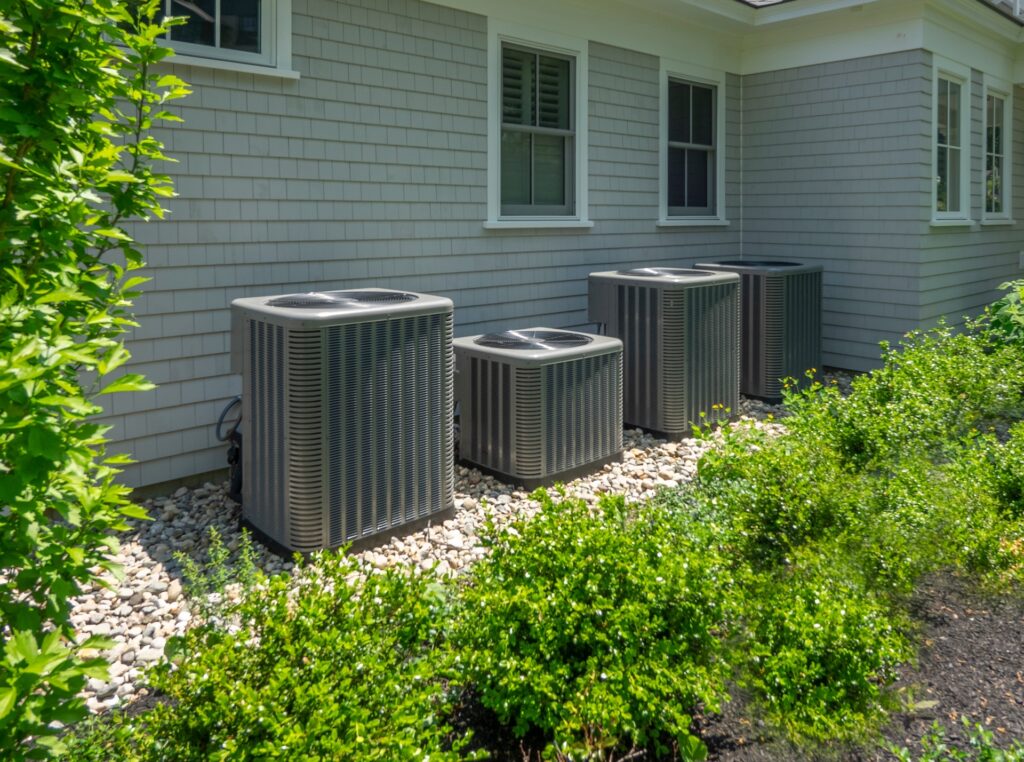
It takes a lot of energy to keep our homes comfortable with heating and air conditioning. In the US, more than half of a typical home’s total annual energy consumption goes toward heating and cooling!
Because it consumes so much energy, upgrading your HVAC system is one of the most effective ways to improve your home’s energy efficiency and reduce your energy costs. But to make a real difference, you need to install the right system.
In this guide, we break down the most energy efficient HVAC systems available in 2025 to help you make the best choice for your home and wallet.
What Makes an HVAC System “Efficient”?
An energy efficient HVAC system uses less energy to heat or cool your home while maintaining optimal comfort. Efficiency is measured by specific ratings, such as SEER (Seasonal Energy Efficiency Ratio) for cooling and HSPF (Heating Seasonal Performance Factor) for heating. The higher the ratings, the more energy efficient the system is.
Types of Energy Efficient HVAC Systems
Air-source heat pumps are one of the most energy efficient HVAC systems available in 2025. They work by transferring heat from one place to another instead of generating heat by burning fuel the way a furnace does. It takes less energy to move heat that already exists than it does to create heat, which is why heat pumps are so energy efficient. Plus, they run entirely on electricity, which means they can be powered by clean energy sources like solar panels.
There are two types of air-source heat pump HVAC systems.
Ducted Heat Pumps
A ducted heat pump connects to your home’s central air duct system. It delivers heated or cooled air through supply vents that are positioned throughout your home, the same way a central furnace or AC does.
Ducted heat pumps are typically the most energy efficient option for:
- Large houses
- Houses with existing ductwork that’s in good condition
Ductless Heat Pumps (Mini Splits)
Ductless mini splits are a type of air-source heat pump that does not need to be connected to ductwork. These systems have an outdoor unit and one or more indoor units (sometimes called indoor air handlers or heads) that are mounted on the wall or ceiling.
Key benefits of ductless heat pumps include:
- Each indoor unit can operate independently, so you can set different rooms to different temperatures. Their ability to operate only in the spaces you’re using helps reduce energy consumption and saves you money on your energy costs.
- In a ducted HVAC system, 20-30% of the air that moves through the ducts is lost due to leaks, holes, and poorly connected ducts, which drives up energy costs. Ductless heat pumps aren’t susceptible to this waste.
Ductless heat pumps are typically the most energy efficient option for:
- Houses without existing ductwork or with damaged ducts
- New home additions
- Specific areas that need targeted heating or cooling, like a finished basement, spare bedroom, or home office
How to Choose the Best Energy Efficient HVAC System
Choosing the most efficient HVAC system for your home can feel overwhelming, especially with so many options on the market. While you’re doing your research, consider the following:
1. Assess Your Home’s Needs
Every home is different, and the right system depends on factors like your home’s size, layout, and insulation levels. We can assess your home’s overall energy efficiency and recommend the best upgrades with a no-cost Home Energy Assessment.
2. Look for High Efficiency Ratings
Pay attention to the system’s SEER (Seasonal Energy Efficiency Ratio) and HSPF (Heating Seasonal Performance Factor) ratings. The higher the SEER and HSPF ratings, the more energy efficient the HVAC system is. It can also be helpful to look for ENERGY STAR-certified HVAC systems, which meet the highest efficiency standards.
3. Choose an Experienced Installer
Selecting and installing an energy-efficient HVAC system is a big decision, and professional guidance can make all the difference. Neeeco will recommend the most efficient system for your specific needs, ensure proper installation, and help you take advantage of tax credits or rebates.
Rebates & Incentives for Energy Efficient HVAC Upgrades
Upgrading to an energy efficient heating and cooling system doesn’t just save you money on monthly utility bills—it also opens the door to significant rebates and incentives. Energy efficient heat pumps are eligible for several rebates and incentives in 2025, including:
- Mass Save® Rebates* – You can save thousands of dollars on a heat pump HVAC system with Mass Save rebates. Schedule a no-cost Mass Save Home Energy Assessment with Neeeco to learn more!
- HEAT Loan Financing* – You may be eligible for 0% interest financing on loans up to $25,000 for heat pump installation.
- Energy Efficient Home Improvement Tax Credit (25C) – Heat pumps are eligible for a $2,000 federal tax credit. Other types of energy efficient HVAC systems, including high-efficiency furnaces and central air conditioners, also qualify for the tax credit but are only eligible for $600.
* Some restrictions apply and offers are subject to change or cancellation. Visit MassSave.com/HEA for full details.
